The Role of Diode Lasers in Dental Treatments
Diode lasers are a prevalent choice in dental practices, offering a targeted and less invasive approach to procedures such as gum sculpting, soft tissue surgery, and tooth bleaching. Their popularity stems from their precision and the controlled manner in which they deliver energy, a critical aspect for the intricate nature of dental work.
These lasers operate by emitting light at a specific wavelength that, upon absorption by tissue, allows for precise cutting or vaporization. The energy is conveyed through a flexible fiber or a hollow waveguide, enabling practitioners to accurately target areas within the mouth. The result is a procedure characterized by excellent hemostasis and reduced swelling, often translating to quicker patient recovery.
Noted for their compactness, user-friendliness, and adaptability, diode lasers are adept at handling both hard and soft tissues, making them indispensable for a broad spectrum of dental tasks. They also boast adjustable power settings, providing fine-tuned energy control essential for delicate dental operations.
Varieties of Diode Lasers in Dentistry
A range of diode lasers is available to meet diverse clinical needs, each with distinct attributes and advantages for particular uses.
-
Continuous Wave (CW) Diode Lasers: Emitting a steady light stream, CW diode lasers are typically chosen for soft tissue work, offering uninterrupted energy flow ideal for cutting or coagulating.
-
Pulsed Wave Diode Lasers: These lasers release energy in controlled pulses, reducing thermal accumulation in tissues. They are favored for precision tasks requiring careful tissue engagement.
-
Single-Use Diode Lasers: Pre-set and sealed for one-time use, these lasers promote hygienic conditions and help mitigate cross-contamination risks between patients.
-
Portable Diode Lasers: Engineered for convenience and portability, these lasers are advantageous for practitioners who operate across various locations or for in-home patient care.
-
Wireless Diode Lasers: These untethered devices enhance maneuverability, powered by rechargeable batteries and featuring touch-screen controls for ease of use.
Selecting a Diode Laser for Dental Applications
Choosing the right diode laser for dental applications requires careful consideration of your practice's specific needs and the laser's features. Key factors to consider include:
-
Wavelength: The laser's wavelength influences its penetration depth and how well it is absorbed by tissue. Diode lasers with wavelengths around 810 nm strike a balance between efficacy and safety, making them a common choice in dental settings.
-
Power Output: The power level, measured in milliwatts, affects the laser's speed and appropriateness for various treatments. More powerful lasers can expedite procedures but necessitate cautious use to prevent tissue harm.
-
Treatment Versatility: Assess whether the laser is versatile enough for multiple soft tissue treatments or if it is tailored for specific therapies like periodontal care. Compact, portable models may also be advantageous for practices requiring a multifunctional device.
-
Ease of Use: Lasers with intuitive interfaces, ergonomic designs, and simple controls can significantly improve the procedural experience for both clinicians and patients.
-
Safety Features: Look for lasers with customizable power settings, diverse operating modes, and safety locks to enhance safe and versatile usage.
Keep in mind that purchases on Alibaba.com often involve bulk transactions. A thorough assessment of these factors will help ensure you procure diode lasers that fulfill your dental practice's requirements.
Discovering Diode Lasers for Dental Procedures on Alibaba.com
Alibaba.com is a leading online marketplace for procuring diode lasers tailored to dental procedures, offering a vast selection from global suppliers. The platform's dedication to simplifying international commerce is reflected in its multilingual interface and mobile compatibility.
Businesses can explore a comprehensive assortment of dental diode lasers crafted from robust materials like metal or acrylic on Alibaba.com. The listings accommodate both functional and aesthetic preferences, with various color options available. Alibaba.com also bolsters confidence in B2B transactions with services such as Trade Assurance, which safeguards payments until delivery confirmation.
Choosing Alibaba.com connects you to a worldwide network where comparing products and negotiating deals that align with your business objectives is streamlined. Whether expanding inventory or meeting specific client needs, Alibaba.com offers quality selections without sacrificing diversity or accessibility.
Frequently Asked Questions About Diode Lasers in Dentistry
What is a diode laser and its application in dental procedures?
A diode laser is a specific type of laser that produces low-level coherent light, employed in various soft tissue dental procedures for its precision and effectiveness in tissue ablation and coagulation, catering to patients with sensitive oral health conditions.
How do diode lasers compare to other dental lasers?
Diode lasers are distinguished by their wavelength, which is conducive to efficient soft tissue ablation and tissue absorption. Other lasers, such as CO2 lasers, may offer different advantages like thermal coagulation or lesion removal through tissue vaporization.
Are diode lasers suitable for all patients and dental procedures?
While diode lasers are versatile and applicable to a broad patient demographic, the choice of laser and technique should be customized to the individual's needs and the specific dental procedure at hand.
What considerations are important regarding power output when choosing a diode laser?
In selecting a diode laser, the power output should be considered in relation to the depth of tissue treatment and the desired speed of the procedure, with higher outputs facilitating quicker and more effective soft tissue ablation.
How critical are safety standards in the selection of a diode laser?
Adherence to safety standards like ISO13485 or equivalent regional benchmarks is crucial, as they confirm the diode laser has undergone rigorous testing and is deemed safe for clinical use.
What after-sales services are typically provided with a diode laser purchase?
Post-purchase services may encompass complimentary spare parts, return and replacement policies, onsite training or installation, and inspections, subject to the supplier's provisions.
How do I ascertain the necessary quality certification for a diode laser?
Quality certification requirements vary by region and generally pertain to medical device standards such as ISO or TUV. Confirming these certifications prior to purchase is essential for ensuring the laser's suitability for your practice.
What are the power sources for diode lasers, and how do they influence performance?
Diode lasers may utilize manual operation, rechargeable batteries for portable models, or direct electrical outlet connections in clinical environments. The power source can affect factors like portability and operational longevity.
Why is it important for the laser wavelength to match tissue absorption characteristics?
A wavelength that aligns with the tissue's absorption properties ensures effective penetration during treatment while minimizing collateral damage, pivotal for precise and safe dental procedures.
How does the classification of instruments impact diode laser selection?
The classification of instruments (Class I, II, III) reflects the associated risk level of a medical device. Higher classifications necessitate stricter regulatory oversight due to increased patient risk. Select a laser with a classification that matches its intended use.
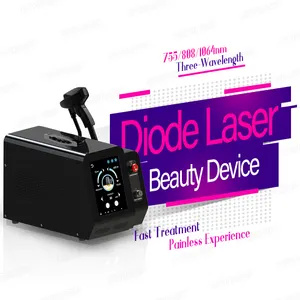
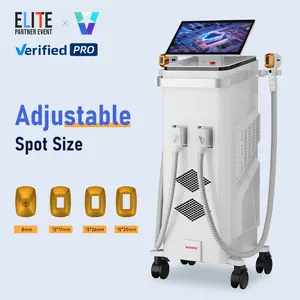







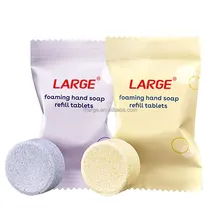


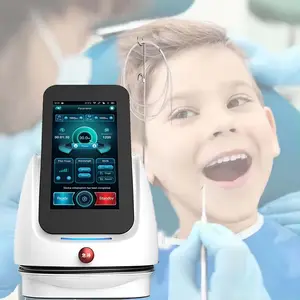
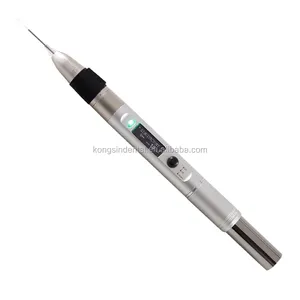














 浙公网安备 33010002000092号
浙公网安备 33010002000092号 浙B2-20120091-4
浙B2-20120091-4